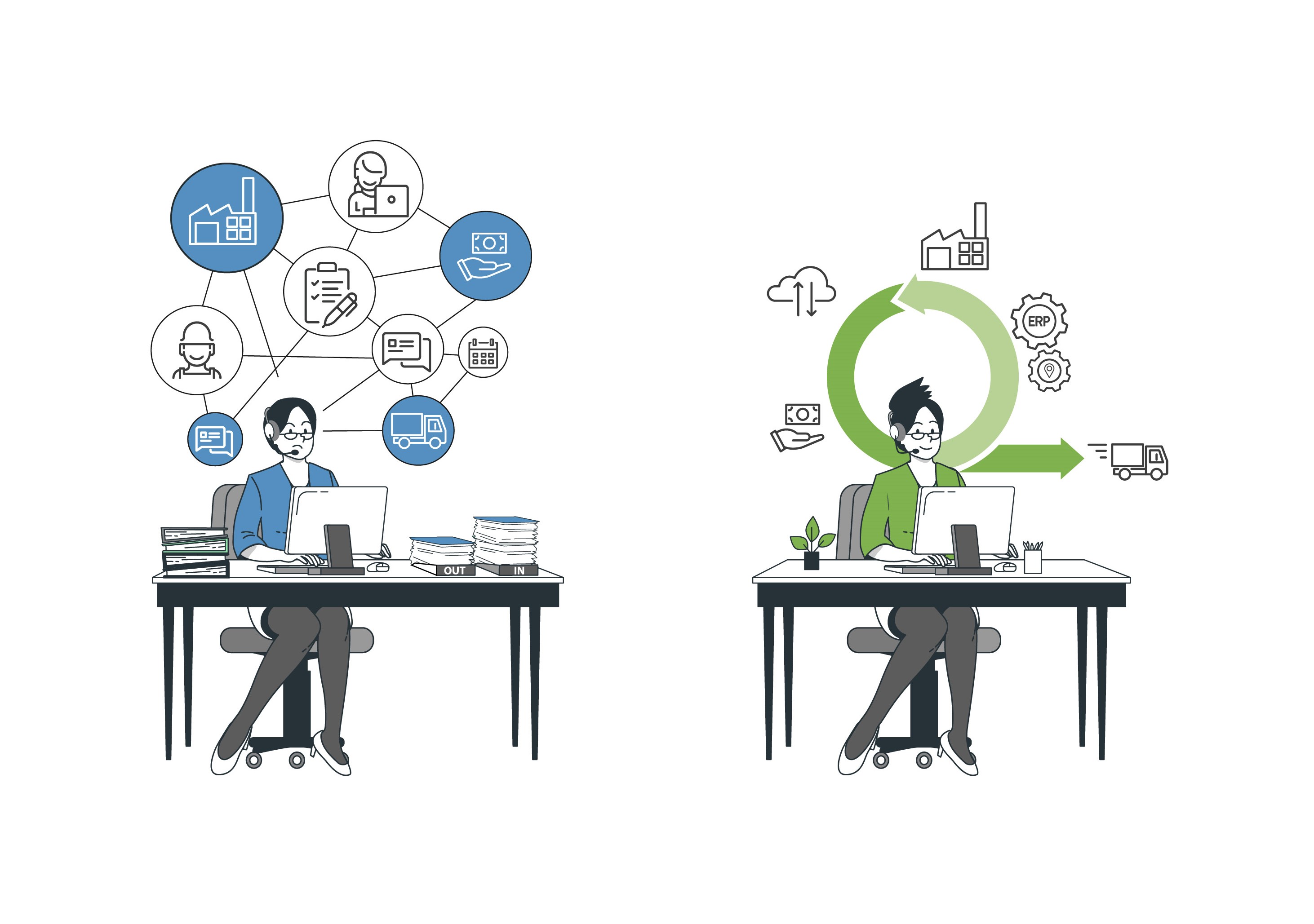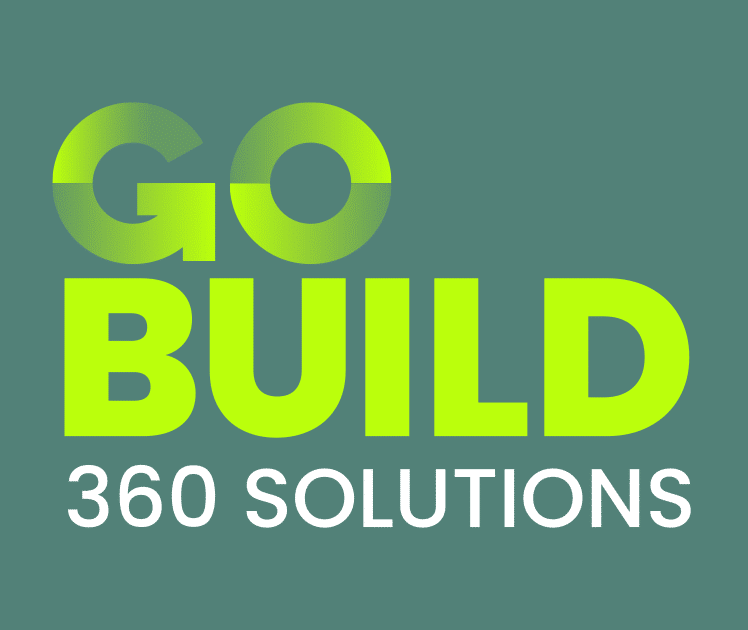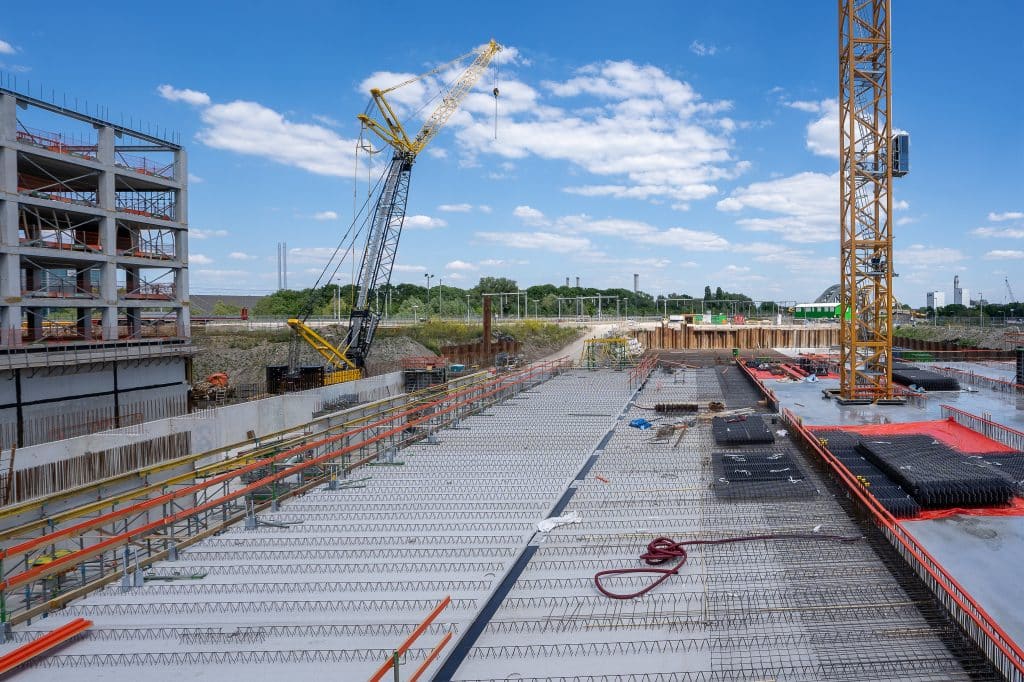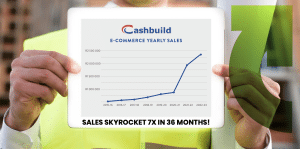Online sales for construction suppliers have evolved dramatically with the advent of new technologies. Among these, MACH tech stands out as a real game-changer — revolutionizing the online sales process. Let’s explore what MACH technology means for the construction industry and how it can increase sales, decrease costs, and pump up your profits.
MACH Tech and Its Importance In Online Construction Sales
MACH technology—comprising Microservices, APIs, Cloud-native SaaS, and Headless—is revolutionizing the way businesses operate. In the construction industry, it’s transforming the way suppliers handle online sales. Here’s how:
Microservices:
Microservices architecture is a way of deploying a collection of small, independent, and loosely coupled services that meet specific needs.
With MACH architecture, you get just the features and services you need, with none of the complicated technology that slows you down. This ensures uninterrupted service and rapid response to changing market needs.
- Independent: Each microservice operates independently, handling a specific functionality or process. This means that if one part of the system needs updating or fails, the rest of the system can continue to function normally.
- Scalable: Each service can be scaled individually based on demand, providing construction suppliers with the flexibility to handle fluctuating sales volumes and market conditions.
- Customization: Because microservices are independent, they allow for more in-depth customization. Construction suppliers can adapt and modify specific parts of their online sales system without affecting the rest.
- Integration: Microservices can be developed, deployed, and maintained separately, which makes integration with existing systems and technologies easier. This seamless integration is crucial for construction suppliers looking to leverage new technology without overhauling their entire system.
- Fast and Agile: With microservices, development teams can work on different services simultaneously. This parallel development increases speed and agility, allowing construction suppliers to bring new features to market faster.
- Technology Agnostic: Microservices don’t require the use of a specific programming language or technology. Different services can be written in different languages, offering flexibility in choosing the best technology for each task.
 API-First Approach:
API-First Approach:
An API-first approach means that the application programming interfaces (APIs) are designed and built as the priority. This can be a transformative approach for construction suppliers looking to optimize their online sales channels. Here’s why:
Build Better Online Sales Channels Faster
With an API-first approach, both front-end and back-end developers can work simultaneously, using well-defined APIs as a common language. This parallel development results in faster time-to-market, which saves you time and money. APIs make it easier for you to stay competitive in the construction supply industry.
Flexible and Reusable:
An API-first approach promotes reusability, as the same API can be employed across different parts of the application or even in different projects. For construction suppliers, this translates into more efficient development processes and cohesive online sales experiences.
Future-Proof:
API-first design ensures that your application is ready to adapt to future changes and new technologies. As the construction industry evolves, having an agile, adaptable online sales platform is crucial. The API-first approach positions construction suppliers to embrace new opportunities and technologies as they arise.
Superior Customer Experience:
The API-first approach ensures a seamless user experience. Customers get the world-class shopping experience they’ve come to expect. This can be particularly valuable for construction suppliers looking to provide a frictionless buying experience for contractors, builders, and their DIY customers.
Cloud-Native SaaS Sales: Advantages for Construction Suppliers
- Scalable: Cloud-native SaaS sales platforms are designed to grow (or shrink) with your business. This scalability is crucial for construction suppliers, where demand can fluctuate with market trends and economic cycles.
- Highly Cost-Effective: Operating on a cloud-native platform means you only pay for the resources you use. This pay-as-you-go model is often more cost-effective than traditional methods, allowing construction suppliers to allocate resources more efficiently..
- Accessible: Cloud-native SaaS sales solutions can be accessed from anywhere with an internet connection. This flexibility is vital for construction suppliers, as it allows sales teams, contractors, and other stakeholders to access information and tools, whether they’re on the job site or in the office.
- Continuous Updates and Integration: Cloud-native platforms offer continuous updates, ensuring that the latest features, security protocols, and integrations are always available. This means that construction suppliers can consistently offer the most up-to-date solutions to their clients without worrying about manual updates and patches.
- Eco-Friendly: Running sales solutions on cloud-native platforms often consumes fewer physical resources than traditional on-premises solutions. This can translate into a smaller carbon footprint, aligning with growing sustainability concerns in the construction industry.
Benefits of Headless Architecture for Online Sales:
A. Flexibility and Customization:
A headless approach separates the back-end (where data is managed) from the front-end (where content is displayed). This separation allows for more tailored user experiences. Construction suppliers can design custom interfaces to meet the unique needs of their clients, whether it’s for browsing products, placing orders, or tracking shipments.
B. Faster Time to Market:
Since the back-end and front-end are developed independently in a headless architecture, teams can work simultaneously. This parallel development accelerates the time it takes to launch new features or make adjustments, enabling construction suppliers to respond more quickly to market trends or customer feedback.
C. Omnichannel Sales Experience:
Headless architecture allows for seamless integration across various platforms and devices. Construction suppliers can offer a consistent experience whether clients are accessing the system through a computer, tablet, smartphone, or even on-site kiosks. This omnichannel approach helps to improve customer satisfaction and engagement.
D. Easy Integration with Third-Party Tools:
A headless system makes it easier to integrate with third-party tools and services, such as CRM, ERP, or marketing automation platforms. This flexibility enables construction suppliers to create a more cohesive sales process, linking different parts of their business for a smoother operation.
E. Improved Performance and Responsiveness:
By separating the user interface from the back-end, a headless system often delivers content faster. It allows construction suppliers to create responsive designs that load quickly, enhancing the customer experience, especially when browsing large catalogs of construction materials.
F. Future-Proofing:
Technology is ever-changing, and adopting a headless approach ensures that construction suppliers can adapt to new technologies without overhauling their entire system. Whether it’s a new device, a new way of interacting with customers, or a new marketing channel, a headless system can accommodate these changes more efficiently.
Advantages of MACH Tech for Online Sales in Construction
The fusion of Microservices, API-first, Cloud-native, and Headless technologies – collectively known as MACH – brings a transformative approach to online sales in the construction industry. These elements work in synergy, providing unprecedented flexibility, efficiency, and responsiveness that meet the complex demands of suppliers and contractors alike.
The advantages extend across the sales process, enhancing customer experiences, accelerating time to market, and ensuring that construction suppliers stay ahead of technological trends.
It’s a model that not only adapts to today’s market but anticipates tomorrow’s needs as well.
Ready to Take Your Construction Supply Business Online?
Our expert team specializes in tailoring online sales solutions that fit the unique demands of the construction industry.
Contact us today to learn more about how MACH technologies can empower your operations and boost your success in the competitive market.




